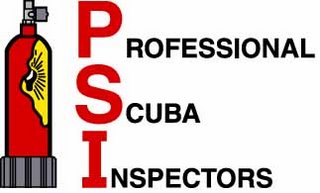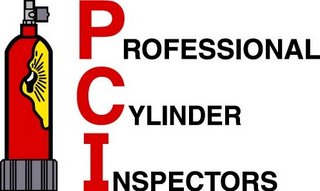
Classes starting September 12, 2008, Washougal Washington. Email for details.
As a DAN Instructor, you can offer your students nine classes that will help make them safer divers.
These classes are:
Oxygen First Aid for Scuba Diving Injuries
Oxygen First Aid for Aquatic Emergencies
Advanced Oxygen First Aid for Scuba Diving Injuries
First Aid for Hazardous Marine Life Injuries
Automated External Defibrillators for Scuba Diving
Automated External Defibrillators for Aquatic Emergencies
Basic Life Support for Dive Professionals
Remote Emergency Medical Oxygen (REMO2™)
On-Site Neurological Assessment for Divers
Diving First Aid for Professional Divers
Diving Emergency Management Provider ProgramDAN Instructors are scuba diving educators who want to offer dive safety programs to their students. To become a DAN Instructor, you must participate in a DAN Instructor Qualification Course (IQC).
The IQC follows a modular format. There is a Core Module and then a separate module representing each training program. You can take all nine modules as part of one course, or just take the Core Module and one course module - whatever you are interested in teaching. Later, as long as you remain a current and active DAN Instructor, you can take additional modules without retaking the Core Module. The Core Module is now available online.
Prerequisites for DAN Instructor Qualification Course:DAN Member
Active scuba diving educator
Current CPR Instructor
Documentation of First Aid training
Prerequisites for DAN IQC Modules:Oxygen First Aid for Scuba Diving InjuriesCPR Instructor
Oxygen First Aid for Aquatic EmergenciesCPR Instructor
Advanced Oxygen First Aid for Scuba Diving InjuriesOxygen First Aid for Scuba Diving Injuries Instructor
First Aid for Hazardous Marine Life InjuriesCPR Instructor
Automated External Defibrillators for Scuba DivingCPR Instructor
Automated External Defibrillators for Aquatic Emergencies Automated External Defibrillators for Scuba Diving Instructor
Basic Life Support for Dive ProfessionalsCPR Training
Remote Emergency Medical Oxygen (REMO2™)Oxygen First Aid for Scuba Diving Injuries Instructor
On-Site Neurological Assessment for DiversOxygen First Aid for Scuba Diving Injuries Instructor
Dive Accident First Aid for Non-DiversTo offer this program, DAN Instructor Trainers and Instructors must be in Active Teaching Status for:
Oxygen First Aid for Scuba Diving Injuries
First Aid for Hazardous Marine Life Injuries
Automated External Defibrillators (AEDs) for Scuba Diving
Diving First Aid for Professional DiversTo qualify, the candidate must:
Have an affiliation with an aquarium, scientific diving program, public safety diving program or a commercial diving operation
Be a CPR Instructor
Be a current DAN Member
Current DAN Instructor Trainers and Instructors who are certified to teach Oxygen First Aid for Scuba Diving Injuries, AEDs for Scuba Diving and First Aid for Hazardous Marine Life Injuries, and who meet the other criteria, may complete an online crossover.
Course ObjectiveThe
DAN Instructor Qualification Course (IQC) trains and educates qualified scuba diving educators to plan, manage, conduct and promote dive safety through DAN Training Programs such as the Oxygen First Aid for Scuba Diving Injuries course, the Remote Emergency Medical Oxygen (REMO2™) course, the Automated External Defibrillators (AEDs) for Scuba Diving and the First Aid for Hazardous Marine Life Injuries course along with the Oxygen First Aid for Aquatic Emergencies course.
In addition, the course develops role-model teaching techniques in the use of first aid for suspected dive injuries. Instructor Candidates also have the opportunity to develop further knowledge in relation to the special considerations involved in providing emergency first aid.
The DAN IQC consists of eight modules. There is a core module that introduces DAN and the DAN Training philosophy. This core program serves as the introduction for all other DAN Training programs. The remaining program modules represent each of the individual training courses offered by DAN. Qualified Instructor Trainers can present all seven program modules or select only the modules appropriate for the Instructor Candidates.
Qualifications of DAN InstructorsSuccessful completion of the DAN Instructor Qualification Course (IQC) results in certification recognizing the Instructor Candidate's understanding and performance of the knowledge and skills contained within this program.
Instructors must maintain active teaching status with DAN in order to conduct DAN Training programs. In order to maintain active teaching status, DAN Instructors must teach or assist with teaching each course they are certified in once within a 24-month period.
Recommended Minimum Hours of TrainingKnowledge and Skills DevelopmentCore Module: 4 Hours
Oxygen First Aid for Scuba Diving Injuries Module: 2-3 Hours
Oxygen First Aid for Aquatic Emergencies Module: 2-3 Hours
Advanced Oxygen First Aid for Scuba Diving Injuries: 1-2 Hours
First Aid for Hazardous Marine Life Injuries Module: 2-3 Hours
Automated External Defibrillators for Scuba Diving: 1-2 Hours
Basic Life Support for Dive Professionals: 8 Hours
Remote Emergency Medical Oxygen Module: 1-2 Hours
The time the course actually takes to teach varies depending upon many factors, including the number of students and their ability to process the educational components of the program along with the number of modules offered. Instructor Trainers desiring to include subjects or training beyond the course requirements may do so only before or following the course. Any additional training must not be required for completion of course requirements.
Required Curriculum Subject AreasThe Instructor Trainer must ensure Instructor Candidate familiarity with each of the following subject areas:
Knowledge Development Core Module What is DAN?
DAN Training Methodology
Role of the DAN Instructor
General Standards and Procedures for All DAN Training Programs
Marketing DAN Training Programs
Disease Transmission
Oxygen and AED Equipment/Safety
First Aid Equipment
 Oxygen First Aid for Scuba Diving Injuries Course Module
Oxygen First Aid for Scuba Diving Injuries Course Module Manual Overview - Standards and Procedures
Knowledge Development Session
Overview
Topics
Skills Development Session
Overview
Use of Scenarios
Injured Diver Scenarios
Teaching Exercise
Oxygen First Aid for Aquatic Emergencies Course ModuleManual Overview - Standards and Procedures
Knowledge Development
Session
Overview
Topics
Skills Development Session
Overview
Use of Scenarios
Injured Diver Scenarios
Teaching Exercise
Advanced Oxygen First Aid for Scuba Diving InjuriesManual Overview - Standards and Procedures
Knowledge Development
O2 Resuscitation Systems (MTV and BVM)
Providing Advanced Oxygen First Aid
Recommendations for Advanced Oxygen Providers and equipment use
Skills Development
CPR Review
Resuscitation with an MTV
Resuscitation with a BVM
First Aid for Hazardous Marine Life Injuries ModuleManual Overview - Standards and Procedures
Knowledge Development Session
Overview
Topics
Skills Development Session
Overview
Use of Scenarios
Injured Diver Scenarios
Teaching Exercise
Automated External Defibrillators (AEDs) for Scuba Diving ModuleManual Overview - Standards and Procedures
Knowledge Development Session
Overview
Topics
Skills Development Session
Overview
Use of Scenarios
Injured Diver Scenarios
Teaching Exercise
Basic Life Support for Dive ProfessionalsKnowledge and Skills Development categories
Initial Assessment
Airway management
Breathing and ventilation
Circulation
Including AED use
Control of bleeding
Shock management
Ongoing Assessment
REMO2™ Course ModuleManual Overview - Standards and Procedures
Knowledge Development Session
Overview
Topics
Skills Development Session
Overview
Use of Scenarios
Injured Diver Scenarios
Teaching Exercise
Diving Emergency Management ProviderTo offer this program, DAN Instructor Trainers and Instructors must be in Active Teaching Status for:
Oxygen First Aid for Scuba Diving InjuriesFirst Aid for Hazardous Marine Life Injuries
Automated External Defibrillators (AEDs) for Scuba Diving
Preferred Additional Credentials:
DAN Advanced Oxygen First Aid for Scuba Diving Injuries
ExaminationGeneral Standards and Procedures Exam - 20 Questions
Module Exams - 10 Questions Each
Course SummaryThe Instructor Trainer must ensure that the Instructor Candidate is able to successfully demonstrate the ability to perform the required skills for each certified program in a role model fashion.
Please email omnidive@gmail.com if you are interested or want additional information.































